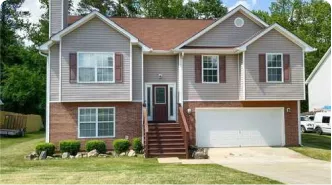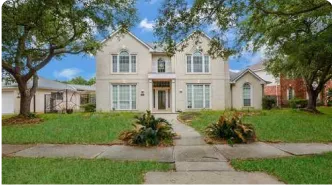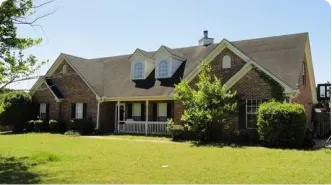Landlords have a financial interest in owning a rental property. If something happens to the property, say a fire, the landlord needs to have landlord insurance to pay to repair the damages caused by the incident. Landlord insurance, also known as rental property insurance, is an insurance policy that offers protection against losses.
The best way to get landlord insurance is through Obie. Obie shops your insurance coverage to many insurance companies, getting you the best possible rate. It’s available in all 50 states. Get a free quote now.
What Landlord Insurance Is
Landlord insurance is a type of home insurance policy that specifically protects a rented structure. Because rental properties are business ventures, there is more risk associated with them, making landlord insurance more expensive than traditional homeowners insurance policies. A landlord insurance policy will cover perils such as fire, theft, water damage, wind damage, and vandalism.
How Landlord Insurance Works
Landlord insurance works the same way that other property insurance policies work. The property owner gets a policy that protects them from losses in the property. If there is a loss, the landlord files a claim. Claims representatives gather all the details about the claim and determine the amount of the financial loss of the property. They then issue checks to pay for repairs or replace damaged property.
Landlord insurance is specific to rental properties. A traditional homeowners policy won’t pay claims on a rented property loss. To be covered, landlords must have the right type of policy on the property. Landlord policies can cover long or short-term rentals and may vary in specific coverage from one insurance carrier to another.
Who Needs Landlord Insurance
People who have a house, condo, or apartment that they use to rent out to others need to have landlord insurance. If the person lives on the property and rents out a room, they may have a homeowners policy with a rental property endorsement that covers the business portion of the property. If they offer the entire property as a rental, the owners must have a landlord policy; otherwise, they are at risk of having to pay for losses out of their own pocket.
What Landlord Insurance Covers
Landlord insurance coverage includes:
- Liability on the property
- Structural coverage
- Business property coverage
Liability coverage is protection from third-party claims. This type of claim would be when a guest claims they had a bodily injury or personal property damaged as the result of the property. It could be something where the guest fell down the stairs and got hurt because the railing was not installed correctly.
Structural coverage is protection for the actual house, condo, or apartment. This coverage protects the walls and would pay to rebuild the structure if there was a loss resulting from incidents such as fire, water damage, or wind damage.
Business property is also covered on the property. Business property might be furniture or appliances such as a washer and dryer on the premises for guests to use.
Landlord Insurance Costs
Landlord insurance costs vary from property to property because insurance carriers look at a lot of factors to determine the rate. Everything, including location, age, size, and home style, will affect the rate. Landlords should expect to pay at least 20% more for a landlord insurance policy than a standard homeowners insurance policy.
Homeowners Insurance vs. Landlord Insurance
On their face, homeowners insurance and landlord insurance policies look the same. They both cover the property owner from liability and will pay for losses to the structure should they occur from a covered peril. Both policies share the same perils for loss, including fire, water damage, wind damage, and vandalism.
In most cases, a traditional homeowners policy will have higher coverage amounts for personal property since a homeowner has all his furnishings and personal items. However, a landlord policy will protect the business property left on the property for tenants to use.
Landlords can expect to pay more for a landlord policy than a homeowners policy since it is used for business purposes and thus rated for higher risk. The risk increases because tenants may do things since they don’t own the property that doesn’t adequately protect it, leading to loss. For example, a tenant might not lock the laundry room door, exposing it to vandals who come in and break the machines.
Landlord Insurance vs. Short-Term Rental Insurance
Short-term rental insurance is a type of landlord insurance for short-term rentals such as Airbnbs or Vrbos. The short-term rental insurance policy will offer protection based on constantly changing tenants and guests and renting the property out. This type of policy may be more expensive than long-term landlord insurance because a revolving door of guests increases the risk of something going wrong, leading to a loss.
Pros and Cons of Landlord Insurance
The pros of landlord insurance are:
- Specified protection for business property rented to tenants
- Covers landlords from expensive liability claims
- Pays to repair the home if a covered loss occurs
The cons of landlord insurance are:
- More expensive than homeowners insurance
- It doesn’t cover guests' belongings
Best Landlord Insurance Companies
Landlords should shop around to find the best rate on insurance. When shopping, get quotes from the top carriers to make sure that the property is properly insured. Here are some of the best landlord insurance carriers on the market:
- Obie: Obie is a nationwide insurance broker that specializes in landlord insurance. They know what landlords need and shop policies to make sure that the landlord gets the right policy for the best price.
- State Farm: Landlords of long-term rentals can get a comprehensive policy from State Farm for slightly more premium than a homeowners’ policy. Local agents help homeowners best understand the risks associated with the home's location.
- Allstate: When landlords share a home with tenants, Allstate becomes a good alternative. Landlords can maintain a cheaper homeowners insurance policy while getting an endorsement for having tenants in the home.
- Nationwide: Nationwide is a national insurance carrier that works with homeowners to bundle policies to maximize the discounts that they can get. This helps decrease insurance costs, allowing rental property owners to maximize profit.
Takeaway
Landlord insurance is a policy homeowners must-have for properties that are rented out to others. Obie is the best insurance solution for homeowners because it is a brokerage that specializes in landlord insurance.
The best way to get landlord insurance is through Obie. Obie shops your insurance coverage to many different insurance companies, getting you the best possible rate. It’s available in all 50 states. Get a free quote now.
.svg)






.webp)







%201.webp)
%203.webp)



%201.webp)
.webp)



.webp)

